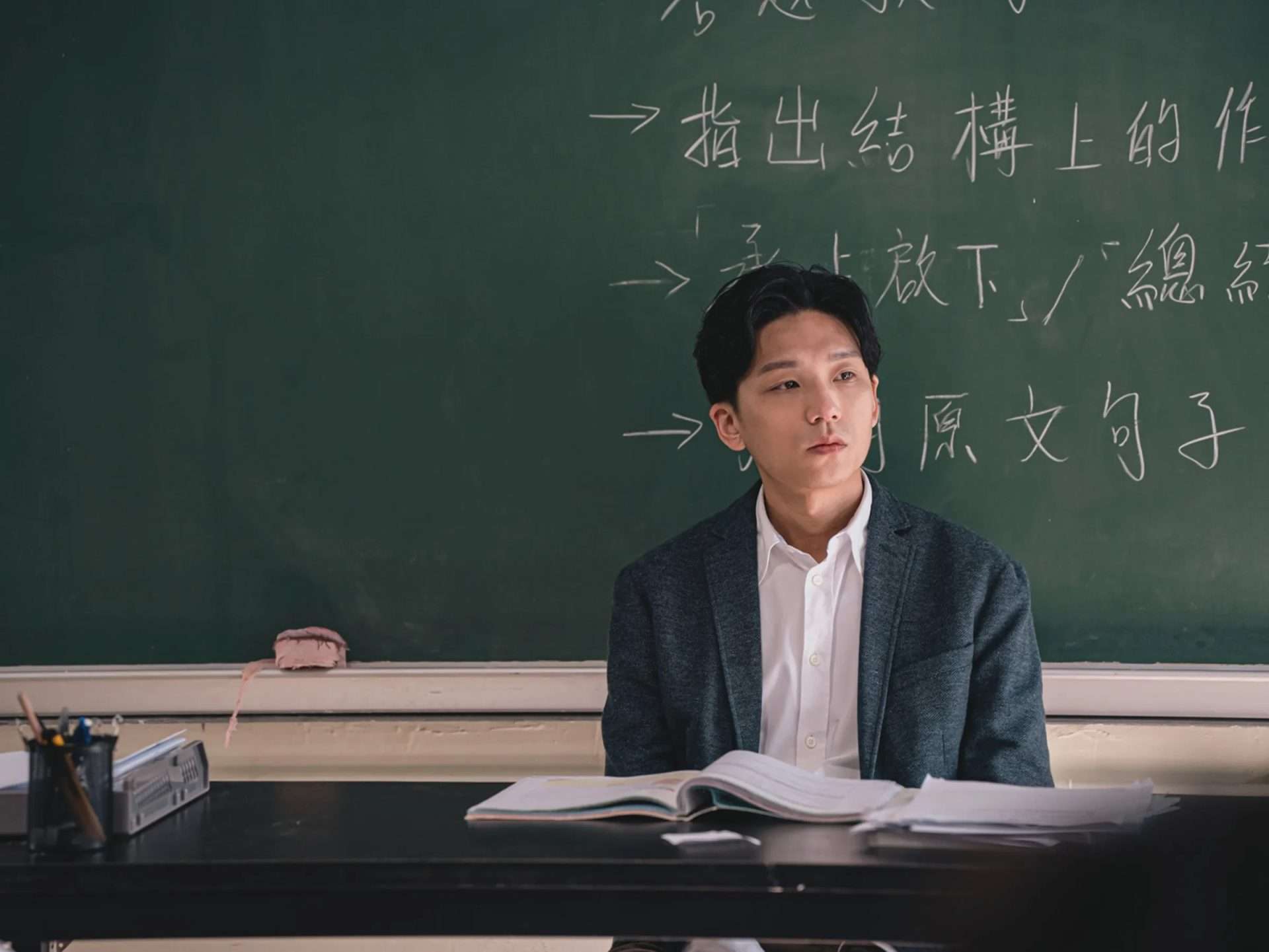In 2023, more than 300 Hong Kong students attempted suicide; 37 died. In the same year, the city’s second highest-grossing local film opens with a shredded and trashed suicide note left in a high school classroom. “Time Still Turns the Pages” (Original title: Nin siu yat gei), the directorial debut of young director Nick Cheuk, is a moving drama dealing with the theme of youth depression, now widespread among Hong Kong’s youth.
Mr. Cheng (played by Lo Chun-yip) is a teacher whose childhood has already been sacrificed to the standards usually set for the younger generation, now grappling with an unwanted divorce. In the school where he teaches, it is discovered what appears to be a draft of a farewell message written by a student intent on killing himself, the resigned realization that it would be, after all, a rational choice. Not everyone can get by in the hope of a more optimistic future, not everyone has the skills to achieve the desired goals, and not everyone is loved enough by their family to not be forgotten, given some time.
The educational and family system portrayed by Nick Cheuk’s drama as “an exceptional case,” as it may seem to a culturally distant viewer, actually appears to be an (almost) sweetened representation of Hong Kong reality. Living in an enormously overpopulated city means, for many people, to live in competition for limited resources. For the students of a society based on degrees, these are the schools of good standing. This is a form of competition that is both apparent and standardized into the academic system that assigns a score to each student in order to publicly rank them by school and class. Hypothetically, going from ranking third in the class to twelfth in the next semester is a regrettable incident. This results in an intolerance to underperforming where even a triviality, such as forgetting homework at home, can become the trigger for a student’s attempt to end their life.
As depicted by Cheuk, parents are often facilitators of a scheme that, in all likelihood, they have already had to overcome themselves. Indeed, such is the case with the protagonist’s family, the Cheng household, consisting of an abusive father, a cold mother, and their two young sons, Eli (Sean Wong) and Alan (Curtis Ho). Eli, whose childhood is retraced in the movie, is labeled as the black sheep of a family composed of individuals considered exceptional. Kind, polite, and affectionate, despite his efforts, he does not do well in school and is always in the bottom ranks of his class.

Eli cannot play the piano as well as his brother, he is not very good at foreign languages, and, in all likelihood, he will not be able to get into a top university. He confides in his diary his dream of becoming a teacher anyway so that he can support students who, like him, struggle more to achieve outstanding results. The same diary that, now an adult, Cheng will reread in the present, the childhood memory resurfaced with the discovery of the grim letter left by his suicidal student in the present. Determined to avoid a tragedy, the teacher tries to figure out who the struggling kid might be and, more importantly, how he can intervene and help him.
A heartbreaking yet gentle film, “Time Still Turns the Pages” manages to handle a distressing theme without making it overly didactic. Highly emotional choices alternate with sequences that are seemingly redundant but perhaps inevitable to depict this kind of story. The acting cast is excellent in portraying the characters’ emotionality, both when greater dramatic force is required and when the feelings should only be hidden in insignificant or small gestures. This is true of the adult cast, particularly Lo Chun-yip as the main character, the portrait of a man never truly healed from past traumas, as well as the child cast. Among all of them, Sean Wong, as young Eli, is outstanding in playing a complex character despite his tender age. Both he and Curtis Ho (Alan) manage to bring a level of believability to the screen that is no less than the performance of more experienced actors.
Polished direction and soft photographic tones blend well with the narrative, and Nick Cheuk proves to be a competent filmmaker despite “Time Still Turns the Pages” being only his first feature film. A tragic but topical movie, it is apparent how deeply upsetting it may have been to the local population, as Hong Kong is still in its early stages of dealing with the issues of trauma and mental health. In the tragedy, there remains hope for change for Hong Kong’s youth and the confidence to witness the impact these new voices will be able to have in a, hopefully, cultural reformation. It is a lesson for adults about the responsibility of being a generational reference and a message for children and teenagers, the hope that a failure will eventually become something allowed and not something so serious as to deprive an entire life of value.
Heartrending and featuring a deeply significant underlying message, “Time Still Turns the Pages” debuted in the territory on November 16, 2023. The film had its European Premiere at the Far East Film Festival in Udine, one of Europe’s largest festivals dedicated to Eastern cinema. It, therefore, hopes for an international distribution wide enough to allow an ever-widening audience to interface with this outstanding cinematic debut.

![This Is Not Berlin [2019]: ‘Tribeca’ Review: The Outsiders](https://79468c92.delivery.rocketcdn.me/wp-content/uploads/2019/05/this-is-not-berlin-1-768x385.jpg)

![The Forgotten Battle [2021] Review: A Triumphant War film That Never Loses Steam](https://79468c92.delivery.rocketcdn.me/wp-content/uploads/2021/10/The-Forgotten-Battle-2-768x405.jpg)

![David Attenborough: A Life on Our Planet [2020] Netflix Review – A Clarion Call to Save the World](https://79468c92.delivery.rocketcdn.me/wp-content/uploads/2020/10/David-Attenborough-A-Life-on-Our-Planet-Netflix-1-highonfilms-768x384.jpg)
